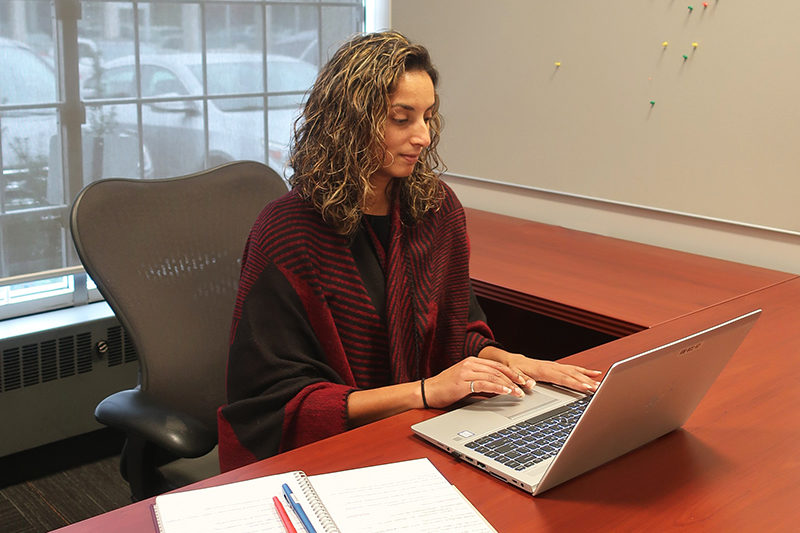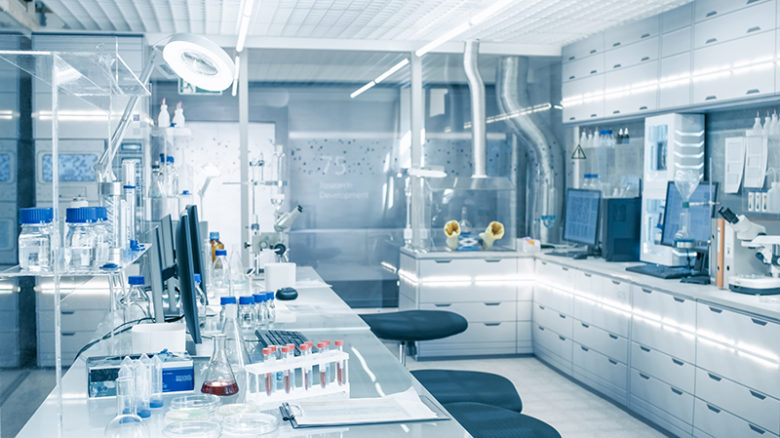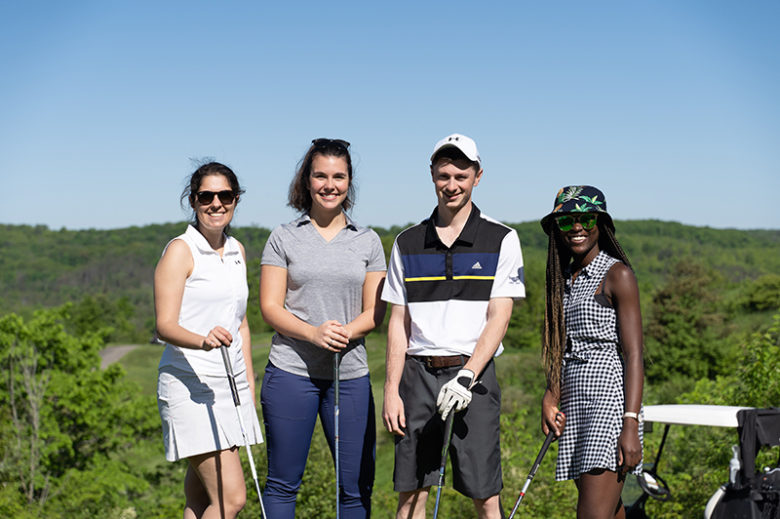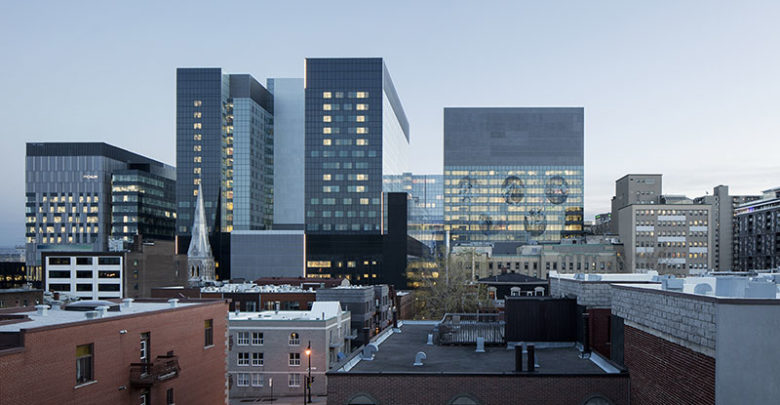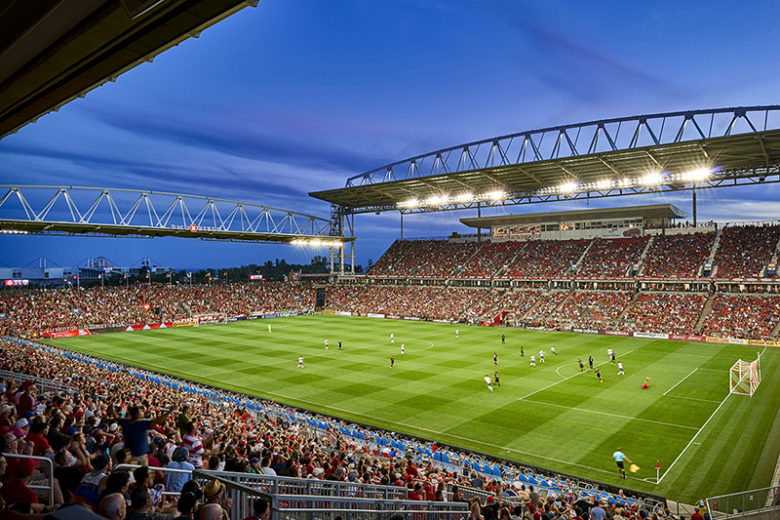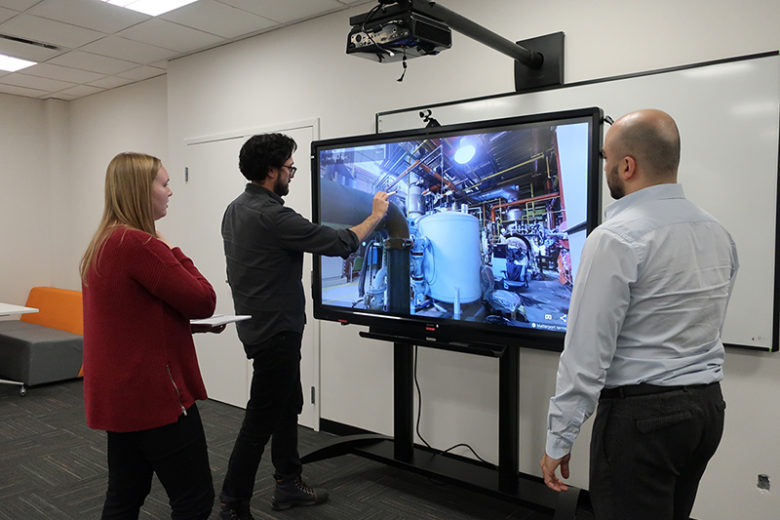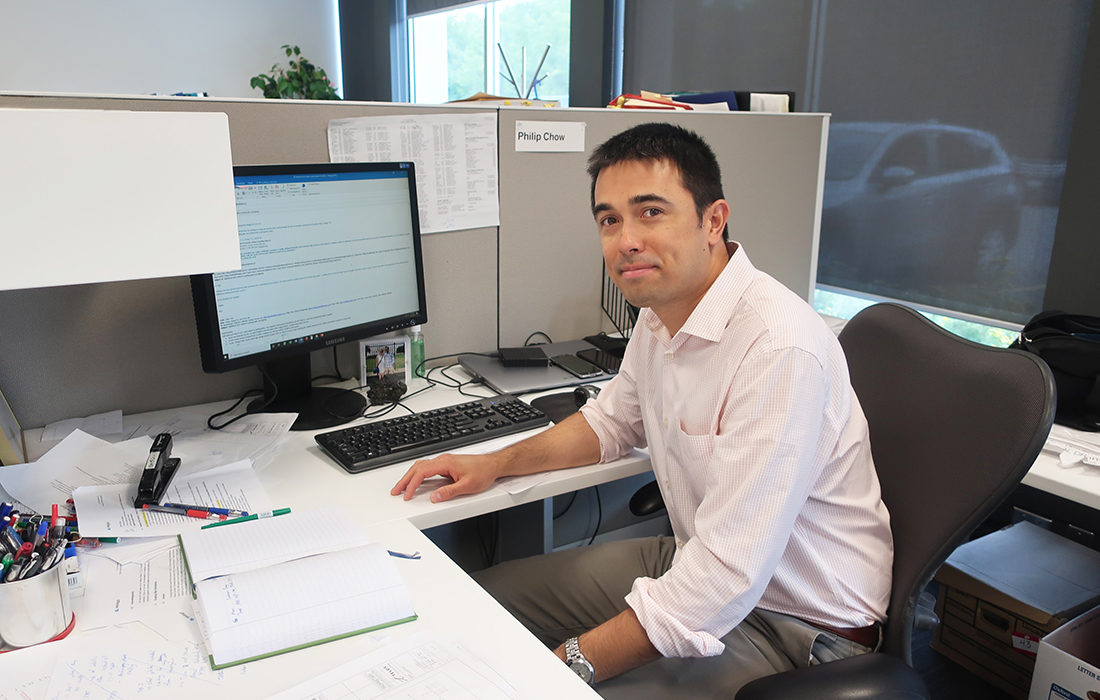
Evan joined HH Angus in 2018, and is an Engineering Designer working with our Health Division.
Tell us your favourite thing about working at HH Angus.
This is an easy question – it is definitely the people! Within the first few months, I got this strong feeling of community and support from everyone. I found that everybody is happy to take the time to listen to any questions you have and always willing to help and to explain new design concepts. It came as no surprise to me that, within short time, you start to refer to your colleagues as your HH Angus family.
What drew you to HH Angus and consulting coming out of school?
Consulting was an attractive option coming out of school. It allowed me to combine the technical engineering I’d been learning with some of the business-related aspects that go along with consulting, such as project management, coordination, working with clients and meeting their needs – that definitely made consulting attractive. As far as why HH Angus, the long history of the firm and the high-profile project list made it an attractive option; it was definitely a good sign to me to see all those accomplishments.
Where did you hear about the new grad openings at HH Angus?
It was through my university’s website. When I spoke with people from my program, they knew students who had done coop terms with HH Angus, and they gave the firm high reviews. So, it definitely got me excited to apply.
How do you personally contribute to design and construction here at the company?
I started on the design side, working behind the scenes, running simple duct sizing calculations or working in CAD and building my foundation of the design knowledge that we use every day. Today, I am in a design-construction role for the Royal Inland Hospital project, living and working in Kamloops BC. I get to work with our design team and coordinate the actual design that is ongoing as we are building a hospital here. We also investigate site-related issues or as-built conditions that may need to be accommodated. I am helping with the design and coordinating with the construction, and I’m really enjoying this new role.
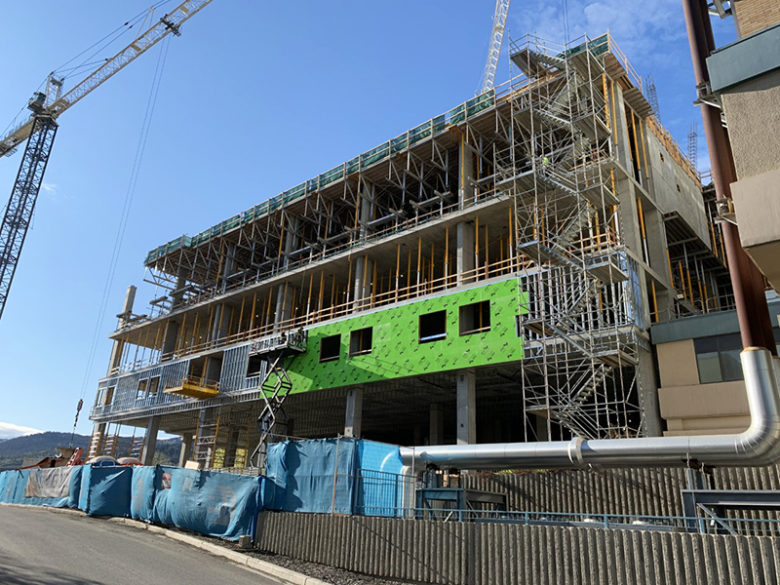
So you are there working with the construction and contractors?
It has been interesting so far to see the other side of the work, which I used to see only from the design perspective. I am attending all the contractor’s meetings now, so I see a more holistic approach, where we need to not only focus on the best way to design the system but also focus on what will work for constructors, and to take that into consideration in the design process.
How has working at HH Angus helped you grow your career?
HH Angus has been a fantastic place to begin and grow my career in consulting. It has provided me with solid foundation to develop my engineering design knowledge. In addition, it has allowed me to receive a gradual introduction to those important business-related skills: whether it’s coordinating a project or liaising with the client, it’s been a great introduction to develop my fundamental technical knowledge while exposing me to some of the behind-the-scenes activities that our business is rooted in.
What made you want to become an engineer or a designer?
My love for engineering came from my grandfather. He was a civil engineer. As I grew up and did more research, I learned that behind the engineering is finding the solution. That’s what engineering is! I found that I love to be handed challenges and then work out the solution within the unique constraints of that issue. Doing that is often challenging, but you feel rewarded after, when you are able to come up with the best possible solution. Getting to do that on a daily basis, when every day you face a new challenge or problem, that makes the work exciting.
As I grew up and did more research, I learned that behind the engineering is finding the solution. That’s what engineering is!
What are some of the projects that you are most proud to be involved in at HH Angus?
Working here in Kamloops on the Royal Inland Hospital project blew everything else out of the water. Getting this opportunity and seeing the value that it has for society makes me proud to know that I am contributing to the overall healthcare system of the country. We are not front line workers, but knowing that the work that I am doing will contribute to people’s lives being saved, ensuring that the building operates as it should and that all the systems keep running – that makes me proud of this project.
How has HH Angus' mobility program helped you with your new role in Kamloops?
Being given the opportunity to move across the country was a dream come true for me. Combining my love for new experiences with the new responsibilities and exposure associated with this role, I knew I had to jump on this opportunity. HH Angus' mobility program helped make my cross-country move seamless, with the numerous support measures and resources that were provided. That level of support still remains to this day and it almost feels as if I still work in the Toronto office
Is what you are doing at HH Angus what you expected to be doing when you graduated?
If you were to tell me two years ago that I would be on the other side of the country working on a construction site solving all these as-built and construction issues as they arise, I definitely would not have thought it would be the case! But, in terms of daily problem solving and those things that made me want to become an engineer, I am definitely doing that and getting the opportunities to solve challenges.
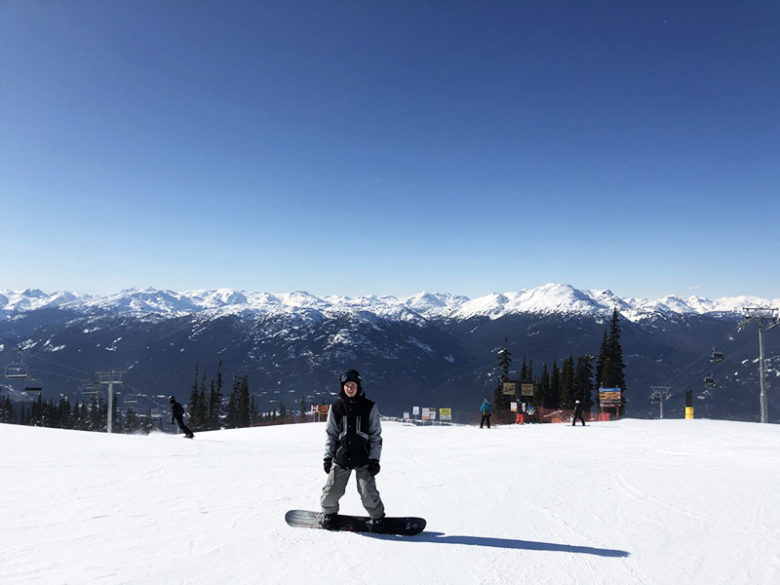
Evan's life in Kamloops
What are some of the things that you like about HH Angus, aside from work?
It does not apply so much here in Kamloops, but before I transferred out here, I would say the extracurricular activities that go on throughout the company. Whether it is the Friday afternoon hockey games, softball or volleyball … I love that. I looked forward to those days every single week. It really helped me grow friendships within the company, and it just makes showing up to work that much better when you can ask someone if they are excited for the game later, or chat about upcoming events and how it went last week, or go out and enjoy a beer afterwards. I really, really enjoy that.
What’s the best thing that you’ve learned on the job?
Perseverance. We’d all like to paint our job as some walk through the park with rainbows, but we can find ourselves in difficult situations that require hard work and critical thinking to get to a solution. I find perseverance leads to success in the end - learning to push through those tough times.
What is your proudest moment here?
The proudest moment I’ve had so far happened when I had been at HH Angus only a few months. I was working on generator report for a client, and it had been weeks and weeks of research, report writing, formatting, and implementing client feedback. The proudest moment was at the end, after I had poured hundreds of hours into this deliverable. We got the feedback from the client on the final report and it was glowing. They were so appreciative of all our work, they loved the content, and they were happy with the depth of detail. We received high praise. Meanwhile, I was still at an entry-level role in the company. To have received such high praise directly from the client and knowing the hard work I had put into this report, that definitely was a very proud moment and I felt really good about it.
Tell us about an experience when a senior staff helped you, maybe early on in your career.
When I started working with my manager in Tech, he was always sharing wisdom with me, whether simple design tips or how to succeed in our role as engineers, things to look out for, and also life advice. When I told him about this current opportunity in Kamloops, he told me to jump all over it, that it would be a great experience for me. Having someone who is able to share their knowledge and experience with you has been really great, and it definitely molded me into the person that I am today with the firm. Numerous times, just having good advice passed down has helped me and led to my success.
When you are out with friends who don’t work in the industry, what’s the first thing that comes to mind when you start describing the company?
We design electrical and mechanical systems for various buildings, from data centers to healthcare facilities and more. But, it’s not just the work. I also describe it as this fun-loving place where it feels like everyone is just hanging out together. You are surrounded by good company and you enjoy spending the day with your work friends; a lot of people get jealous when they hear that. All the extracurriculars that we do and all the fun that I have participating in them – everyone has a hard time believing that I leave work at noon on Fridays to go play hockey for an hour and the day is done after that. Just one of the many benefits of our flex-time policy!
You are surrounded by good company and you enjoy spending the day with your work friends; a lot of people get jealous when they hear that.
What inspires you?
Being able to make a difference. Sometimes it’s hard to see the direct impact your work has on a project and it is not until the structure is being built and the building is operating that you are going to see the impact that you made. In some cases, you are just add air conditioning into the building and it goes unnoticed for most of the people. But being able to make a difference and knowing that you put hard work into these system designs, providing solutions that keep the client happy, using the latest technologies – it’s rewarding even though you may not be getting direct recognition from end users. It’s knowing that the work you are doing is having an impact; that inspires me to work harder and think a little more critically versus taking the easiest route.
What are some of the trends and tech that excite you the most?
For me, it’s the increased awareness around energy and efficient operations of our systems. For example, I didn’t realize how much thought and effort needs to go into coming up with complex design sequencing in order to run air handing units. It may not necessarily be new technology but it is utilizing new and emerging methods of energy conservation and energy recovery, and we’re discovering how to incorporate those into the design. That’s what gets me and other people on this current project excited. It is a lot of work, and you definitely have to start thinking in new creative ways. But it is exciting to help build the future and make a difference on the energy front.
What skills or trait have helped you the most to advance in your career?
Communication skills - engineering is a discipline where people understand how things work, but being able to effectively communicate your understanding and your ideas - how you see things in your head - is an important part of what we do. Having strong communication skills has definitely led to my success on projects.
Is there something people will be surprised to learn about you?
I have a big appreciation for classical music, and jazz and blues … something not popular in my age group. I have appreciation for arts, I love taking time to visit museums.


